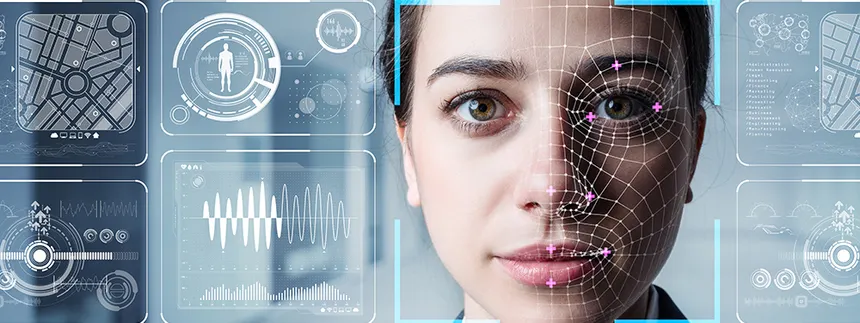Facial recognition technology (FRT) has become one of the most controversial innovations of the 21st century. While it offers undeniable security benefits, concerns over privacy, ethics, and potential misuse are growing louder. Governments, businesses, and human rights activists are now locked in a heated debate: Should facial recognition be regulated, or is it too dangerous to use at all?
What Is Facial Recognition Technology?
Facial recognition technology uses artificial intelligence (AI) to identify individuals based on their facial features. It works by scanning a person’s face and matching it against a database of images. The technology is widely used in smartphones, security systems, airports, and even social media platforms.

The Benefits of Facial Recognition Technology
Despite ethical concerns, face recognition technology has several advantages:
1. Improved Security and Crime Prevention
- Law enforcement agencies use FRT to identify criminals and missing persons.
- It enhances airport security by identifying potential threats.
- Businesses use it to prevent fraud and theft.
2. Convenience in Daily Life
- Unlocking smartphones and devices without passwords.
- Faster check-ins at airports and hotels.
- Seamless payments without the need for cash or cards.
3. Public Safety Measures
- Governments use it for crowd control and monitoring large public events.
- Helps locate missing children and vulnerable individuals.

Ethical Concerns and Controversies
While facial recognition technology has clear benefits, many critics argue that it threatens individual freedoms and privacy.
1. Privacy Invasion and Mass Surveillance
- Governments and corporations collect vast amounts of facial data without consent.
- Critics warn that constant monitoring turns society into a surveillance state.
- Lack of clear regulations makes it easy for misuse and overreach.
2. Bias and Discrimination Issues
- Studies show that facial recognition systems have higher error rates for people of color and women.
- Biased algorithms can lead to wrongful arrests and discrimination.
- Unequal accuracy raises concerns about fairness and justice.
3. Potential for Misuse
- Authoritarian governments use facial recognition to track and suppress political opponents.
- Hackers and criminals can exploit facial data for identity theft.
- Employers may use FRT to monitor employees unfairly, raising workplace privacy issues.
Global Regulations and Different Approaches
Countries and organizations worldwide have different approaches to regulating facial recognition technology.
1. Countries That Have Banned or Restricted FRT
- European Union (EU): The EU is considering strict regulations, limiting government and corporate use.
- United States: Cities like San Francisco and Portland have banned facial recognition for law enforcement and government agencies.
- China: Although heavily reliant on facial recognition, China faces criticism for using it in mass surveillance.
2. Countries Encouraging Its Use
- China: Uses FRT for public security, digital payments, and social credit scoring.
- Russia: Expanding its use of FRT in public surveillance and security monitoring.
- United Arab Emirates: Implements FRT in airports, shopping malls, and law enforcement.

Future of Facial Recognition: Regulation or Ban?
As debates intensify, experts suggest different approaches for the future of facial recognition technology.
1. Stricter Regulations and Ethical Guidelines
- Clear laws to protect citizens’ privacy.
- Companies should ensure transparency in data collection and usage.
- AI systems must be improved to eliminate biases.
2. Potential Ban in Certain Areas
- Some argue for banning facial recognition in public spaces to prevent mass surveillance.
- Restrictions on corporate use to prevent misuse and unethical data collection.
3. Ethical AI Development
- AI developers must create unbiased, fair recognition systems.
- Governments and tech companies should collaborate on ethical AI use.
Conclusion: A Technology at Crossroads
Facial recognition technology is a double-edged sword. While it has the power to enhance security and convenience, it also poses serious risks to privacy and human rights. The global debate continues, with some pushing for stricter regulations and others calling for an outright ban. As technology advances, the world must find a balance between innovation and ethical responsibility.
Do Follow USA Glory For More Updates.






